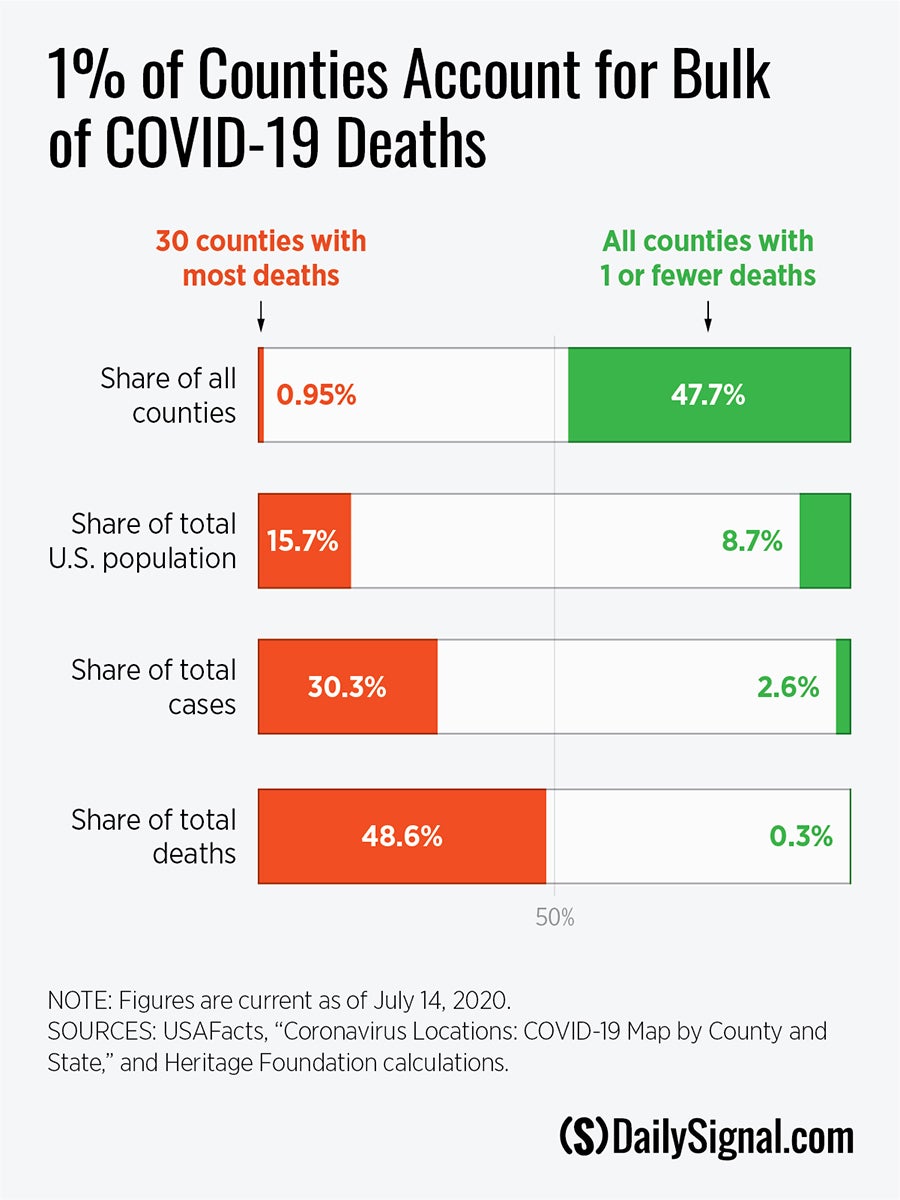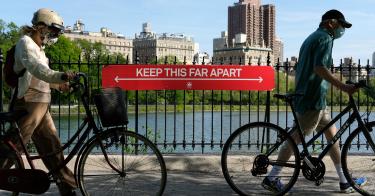As Heritage Foundation researchers have demonstrated throughout the pandemic, the spread of COVID-19 in the U.S. has been heavily concentrated in a small number of states—and among a small number of counties within states. Even though the U.S. has seen a rapid rise in cases during the last few weeks, the overall levels of concentration have remained fairly consistent.
As of July 14, 2020, for example, just 10 states account for 61% of all U.S. cases and 66% of all deaths (and 62% of the population).
The five states with the most cases—New York, California, Florida, Texas, and New Jersey—report 43% of all U.S. cases and 45% of all deaths.
Together, New York and New Jersey alone account for 34% of total COVID-19 deaths, though they include only 9% of the U.S. population.
These state-level figures do not, however, adequately describe the concentrated nature of the spread of COVID-19.
The 30 counties with the most COVID-19 deaths, for example, account for nearly one-third of all the cases in the U.S. and 49% of all deaths, much greater than their 16% share of the U.S. population. That is, just 1% of the counties in the U.S., representing 16% of the U.S. population, are responsible for approximately half of the country’s COVID-19 deaths.

Of those 30 counties, 24 are in the Northeast corridor between Philadelphia and Boston, the passageway served by a commuter railway system that runs through Manhattan.
Overall, only about 10% of the counties in the U.S. contain 90% of all the COVID-19 deaths, even though these counties include 62% of the population.
Throughout the pandemic, there have been many U.S. counties with relatively few COVID-19 deaths. For instance, as of May 11, 64% of all counties (16% of the U.S. population) had one or fewer COVID-19 deaths. As of July 14, 48% of all counties (9% of the population) have no more than one COVID-19 death each.
While these numbers have obviously declined since May, many counties still have a relatively small number of COVID-19 deaths. In particular, as of July 14, 66% of all counties (16% of the population) have five or fewer COVID-19 deaths.
Now that COVID testing has dramatically increased and many state and local governments have relaxed stay-at-home orders, it is even more critical to study the trends in deaths along with cases. To make studying these trends easier, The Heritage Foundation now has two interactive COVID-19 trackers—one that tracks trends in cases, while the other tracks trends in deaths.
The trackers describe whether the trend of cases—or deaths—is increasing or decreasing over the prior 14 days, and provides a visual depiction of new cases—or deaths—during this time period. These tools help put the concentrated nature of the pandemic in perspective with county-level data and they show just how difficult it can be to use only one metric to gauge whether a county or state is doing well.
For instance, Harris County in Texas has seen increases of cases over the past two weeks, with a rate of 39 additional new cases each day for the past 14 days. On July 14, the county had 2,001 new cases, the most of the two-week period. Deaths have seen an increase as well, with one additional new death above trend every five days.
Another example is DeKalb County in Indiana, which is also experiencing increasing cases. However, its new cases are only one above trend over the 14-day period, and it has had a total of 15 new cases over the past 14 days. DeKalb also ranks around the middle of U.S. counties for cases with less than a half a percent of the population recording COVID-19 cases.
Readers are invited to explore the information in the tracker and check back frequently for updates.
This piece originally appeared in The Daily Signal



